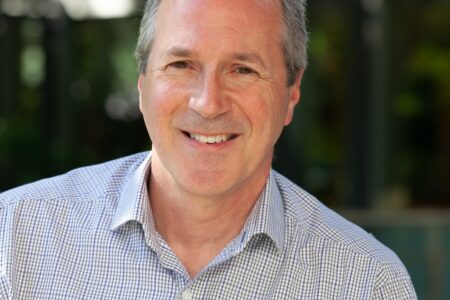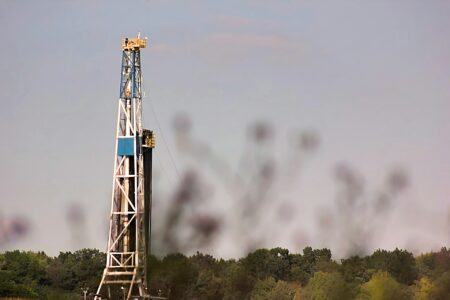The Victoria Legislature bomb plot demands a response from any thinking, feeling person in BC
I’d had my column already written; the topic was Canada’s war in Afghanistan. Then the events at the Victoria Legislature hit the news, and it is clear that something must be said about that. It is noteworthy, to me at least, that I was thinking about our war against the Afghan Taliban at a time when two young people were acting to express their rage against the West and its wars in Muslim nations.
Canadians can try harder to answer this question: “What is the motivation for violence against our society by Canadians who believe Islam is threatened by our nation and our culture?”
First, I am not persuaded that we know what we need to know, in order to comprehend what Nuttall and Korody were trying to do, and if indeed they were truly violent or being used as pawns by Canada’s security services to expose deeper-hidden threats to our peace. It may be that these two are not truly competent for this crime alleged against them, and that RCMP agents, who gave them clandestine help to plan their bombing, are more culpable than they.
If it emerges that our police were using these two, and thrust them into activity they might not ever have taken without encouragement from an undercover agency, then I for one will be angry at the police. There must be a limit to using people as pawns for purposes the police might have in discovering who in Canada might be violent terrorists.
But I want to move the discussion away from this specific incident to ask about revolutionary terror and violence as a way to force societal change. Were we cheering the opposition in Syria, Libya or Egypt when they were trying to force dictators to give up power? Surely we were. We cheer because their cause is just. Obviously, in these lands, presidents were guilty of violent injustice and oppression. When Arab peoples rise up, Canadians believe the crowds only want what Canada has – rights, democracy, freedom, rule of law, and a decent living.
Violence has made history. War alters history. Revolution changes regimes, and civil war makes societies take altered paths. In history classes, Canadian schoolteachers do not aim to draw students to one conclusion about violence when revolution or war are subjects. But the question always hangs over the topic: “Is violence justified?” It’s a typical essay topic.
On Remembrance Day, the message of our memorials is pretty clear: Canada had to fight, we were right to fight, our soldiers died as heroes, in a cause that was justified: “They deserve all respect and honour.” Canadians are free because we fought wars, is the stated conclusion.
Therefore, some violence is justified. Would it be justified if bombs caused a government to criticize its own acts and make significant change to its policy? Then, the bombs of the FLQ in Quebec surely had a positive effect in the 1960’s. The Parti Quebecois is a fact of our history. When this new party was formed in 1968 as an effect of the FLQ bombings, the federal government became much more serious about how to accommodate Quebecois nationalism.
The PQ made history by leading Quebec close to leaving Confederation in two referendums. Without the expression of nationalism in a violent form by the FLQ, with revolutionary goals, it is fair to say that our history would have proceeded differently. The PQ helped an evolution in Quebec, within the law. Similarly, violent rebellion in 1869 under the leadership of Metis Louis Riel led to a fifth province, Manitoba, entering Confederation in a peaceful parliamentary act.
What would bombs killing people at the BC Legislature have accomplished? Public outrage from a large majority of Canadians, backlash anger against Islam from a significant minority. We have seen this in the USA, and it’s legitimate to expect the same results to occur here.
Terrorism was supposed, in anarchist theory, to make a people turn against its government. The 19th Century theorists of terror were anarchists. They wanted an end to all government, not to make a new kind; they were not communists. Assassinations by pre-WWI terrorists (“propaganda of the deed”) aimed at forcing governments to be more oppressive, i.e. to use the secret police and military in ways that would mobilize people against government. People would become angry against their loss of liberties when the State used more force, less law, and anti-democratic means, to stamp out the terrorists. People would “convert” to anarchism.
But today’s terrorists do not have a theory, at least not that I’ve read. Muslim jihad as theorized by Bin Laden is not like classic terrorism. He wanted to hurt the West because it was hurting his utopian vision of an ideal Islam. Bin Laden wanted to revolutionize his home, Saudi Arabia. The USA upholds corrupted feudal-capitalist regimes in Muslim nations, so his solution was to take the war into the West. But he did not believe that Westerners would be revolutionized after the acts of terror carried out by his jihadists. Bin Laden hoped that the West would leave Islam alone when the consequence of wars in Muslim nations was to have terror in Western lands. If the West left Islam alone, withdrew all forces, stopped upholding corporate order in Arabia, then Bin Laden would have achieved his aims. In his wildest dream, he may have wanted to revive a global Caliphate. But he would have settled for medievalized Islam.
Canada might need a revolution. Our society is not a just one. Inequality and injustice are quite visible. Damage to people and our environment is fairly charged against the way legal capitalism operates — corporate profits overshadow all other considerations. But we do not have revolutionaries against this social order. We have protest. We have movements. We have legal organizations using law courts to fight abuses. We are far from being so politically mobilized as we seemed to be in the late 1960s and early 1970s. No one fears violent terrorist acts, such as the Weathermen or Squamish Five were once willing to undertake, in 2013.
I see a consensus in Canadian public opinion today: Violence is not justified to make change. Our systems work. Our laws will be changed peacefully to make other change happen. I am pleased that this is so at present. I do not for a moment believe this is a permanent situation.
Charles Jeanes is a Nelson-based writer. The most recent edition of the Arc of the Cognizant can be found here.

























Comments